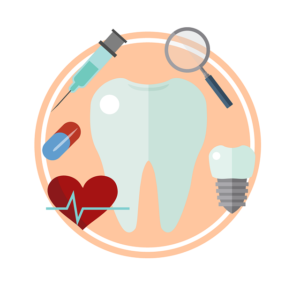Oral and Maxillofacial Surgery deals with the prevention, study, diagnosis, and treatment of diseases that affect these areas.
What pathologies does Oral and Maxillofacial Surgery treat?
 The maxillofacial surgeon performs everything from wisdom teeth extractions or dental implants to cosmetic or oncological surgeries. Among the diseases it treats, the problems of facial trauma, cleft lip, and cleft palate stand out. They also treat salivary gland pathology (benign and malignant tumors, among others), craniofacial deformities, infectious cervical facial pathology, cysts of the jaws, and pathology of the temporomandibular joint.
The maxillofacial surgeon performs everything from wisdom teeth extractions or dental implants to cosmetic or oncological surgeries. Among the diseases it treats, the problems of facial trauma, cleft lip, and cleft palate stand out. They also treat salivary gland pathology (benign and malignant tumors, among others), craniofacial deformities, infectious cervical facial pathology, cysts of the jaws, and pathology of the temporomandibular joint.
What subspecialties are there in Oral and Maxillofacial Surgery?
Oral and Maxillofacial Surgery are orthognathic surgery, implant surgery, and oral surgery. This specialty is closely related to others, such as Plastic Surgery, Neurosurgery, Ear, Nose, and Throat.
When should I go to the oral and maxillofacial surgeon?
You should go to an oral and maxillofacial surgeon when you want to treat any of the aforementioned diseases. If you want to carry out implant treatment or treat any fracture of the facial bones, you should go to your office. You should also go to treat dysfunction of the temporomandibular joint, dentofacial deformities and tumors in the area of the head and neck.
 When to go to a maxillofacial surgeon?
When to go to a maxillofacial surgeon?
-
- Oral Surgery and Implantology: we include any surgical act that is carried out in the mouth and its annexes, such as the minor and major salivary glands. Highlights simple extractions and complex as wheels judgment, canines, or supernumerary teeth. An important aspect is the placement of dental implants, and all bone graft or biomaterial surgery when there is a bone deficit.
- Dentofacial deformities: in collaboration with orthodontists, we treat occlusion problems and aesthetic issues that are due not only to alterations of the teeth but to maxillomandibular bone problems that require corrective surgery of the bone bases, it is called orthognathic surgery.
- Tumores head and neck: benign tumors and especially malignant treated by maxillofacial oncology sections in large centers. This includes surgery to remove the tumor and its possible extension to the neck, as well as reconstructive surgery for facial defects using highly complex microsurgical flaps.
- Fractures of facial bones: the maxillofacial trauma is any fractures of facial bones, including isolated fractures of the orbital rims, the floor of the orbit, cheekbone, maxilla, and mandible or major trauma we call pan facial and affect almost all the bones of the face.
- Other treatments such as problems dysfunction temporomandibular joint or child surgery malformations, which would include the craniofacial and cleft lip and palate, among others.
